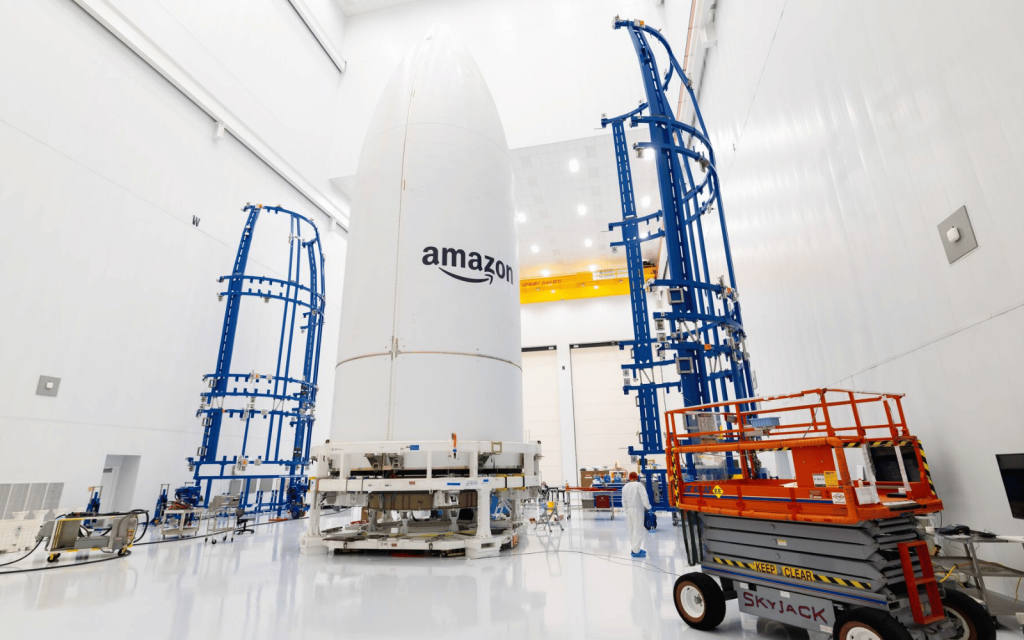Amazon’s Project Kuiper will release its first full load of satellites into low-Earth orbit soon. The mission, called “KA-01”, for Starlink’s main competitor is currently scheduled for “no earlier than” 18h00 SAST on Wednesday, 9 April.
Barring any further delays, a United Launch Alliance (ULA) Atlas V rocket will launch from Cape Canaveral Space Force Station in Florida and transport 27 internet-from-space-enabled satellites to about 450km above the Earth.
Once the satellites have successfully separated from their launch vessel, “a series of mostly automated steps to activate onboard systems” will commence as their electric propulsion systems carry them to their eventual orbit of 630km. When they’re in place, they will orbit the planet once every 90 minutes and travel at speeds over 27,359km/h.
There they will (hopefully) stay and eventually form part of Amazon’s 3,200-strong space-based broadband network, beaming “high-speed, low-latency internet to virtually any location on the planet.”
“We’ve designed some of the most advanced communications satellites ever built, and every launch is an opportunity to add more capacity and coverage to our network,” said Rajeev Badyal, vice president of Project Kuiper.
Will Project Kuiper beat Starlink to SA?
We’ve all but given up on seeing an amicable Starlink launch happen in South Africa, despite what professional Starlink glazers will have you believe.
But seeing as Amazon has already established itself here and, through Project Kuiper, has partnered with Vodacom to bring the internet service to South Africa, South Africans likely won’t have to miss out on internet-from-space for much longer.




